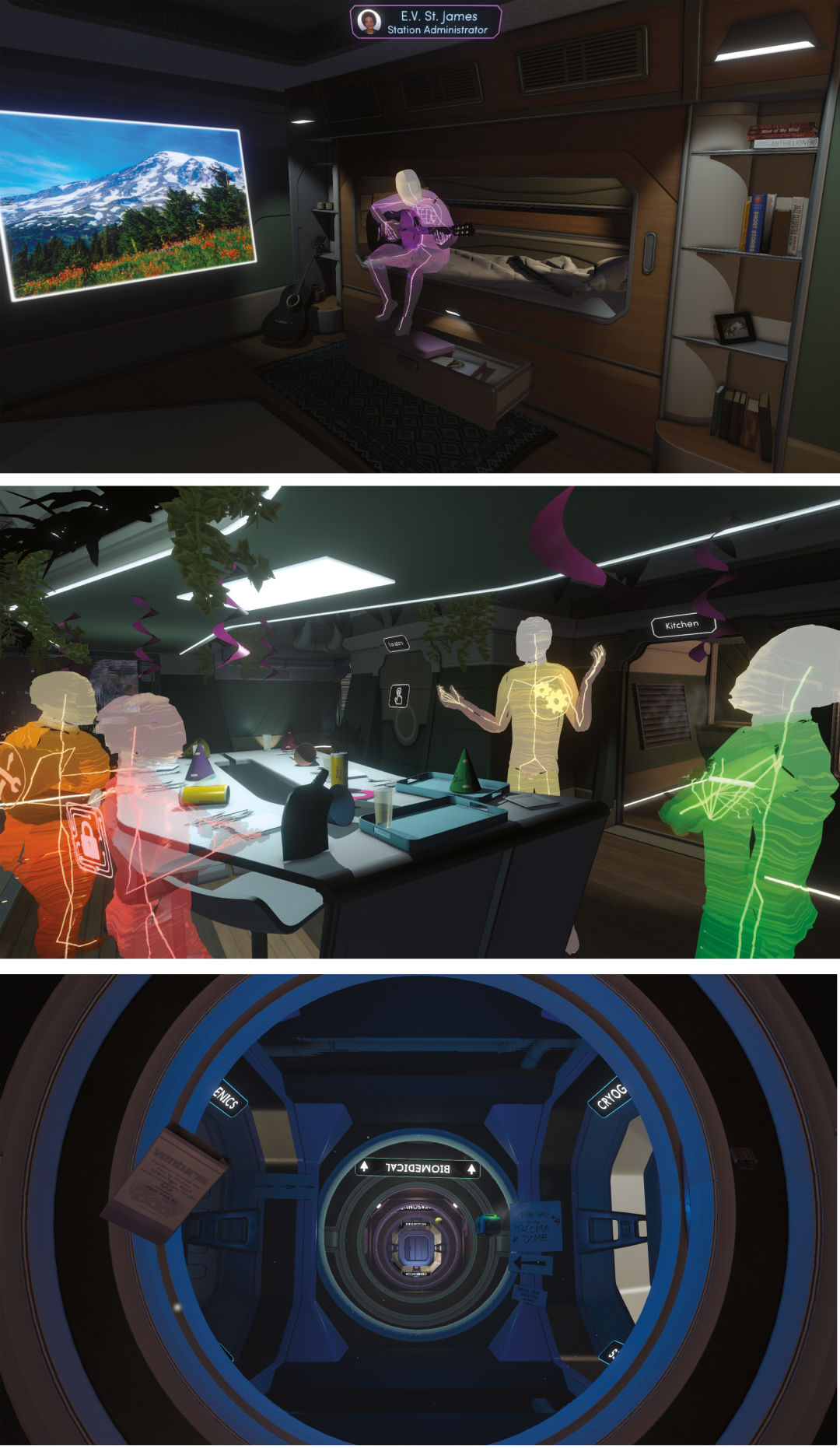The Creators of Acclaimed Video Game Gone Home Head for Deep Space

Screenshots from Tacoma show the player watching holographic “recordings” of the missing space station crew.
Image: Courtesy Fullbright Company
"Venturis is there, no matter where you are.”
The motto hangs over the door of the inner air lock on Tacoma Station, as a warning or a reassurance; it’s not clear. Either way, Venturis—a watchful, seemingly omniscient computer program—floats over your head, following, listening, talking. The inner door hisses open and you step inside. Your immediate task: find out why the orbital station’s crew disappeared.
This is Tacoma, an upcoming video game from Portland studio Fullbright, set in the near future on the eponymous space station. (Editor’s Note: The game was released in early August. Portland Monthly's full review to follow.) Tacoma follows Fullbright’s wildly successful 2013 game Gone Home, a poetic first-person adventure that earned multiple awards and raves from PC Gamer, Polygon, and IGN. The game sold 250,000 copies in its first year, a spectacular commercial success by indie gaming standards.
Expectations for the new title are accordingly high. After originally setting the game in Tacoma, Washington (hence the name), the Fullbright team moved it to deep space early on. Then last year, Fullbright aborted Tacoma’s scheduled launch after industry insiders, including legendary indie game designers Jonathan Blow and Davey Wreden, tested it. Reviews were positive, but Fullbright cofounders Karla Zimonja and Steve Gaynor say they reworked parts of the game because they worried Tacoma might resemble Gone Home a bit too much.
Like its predecessor, Tacoma focuses on a mysterious disappearance, and the clues left behind by the vanished. The thematic similarity became a point of, shall we say, creative tension for the Fullbright team.
“It’s a weird balance, because you want to be able to use your strengths,” says Zimonja. “You don’t want to throw out all the stuff we learned from the last project. But repeating yourself forever is spiritually crushing.”
Like Gone Home, Tacoma touches on social issues. Fullbright’s first hit involved (spoiler alert!) a young woman coming out to her family, while Tacoma wrestles with the ethics of high-tech surveillance. But Gaynor insists the game is about more than just a hot-button political topic.
“Our real focus is on how a crew of six people managed to pull together and rely on each other—and survive—despite being in the middle of a huge, unknowable corporate system,” he says. “One of my go-to references is The Wire, which is an investigation of how individuals navigate the complexities of a system they each have very little ability to directly affect.”
To bring the game to market, Fullbright’s team grew—but only from four to eight, working in an east-side office the size of a dorm room. At least one thing isn’t changing: Fullbright’s indie cred.




